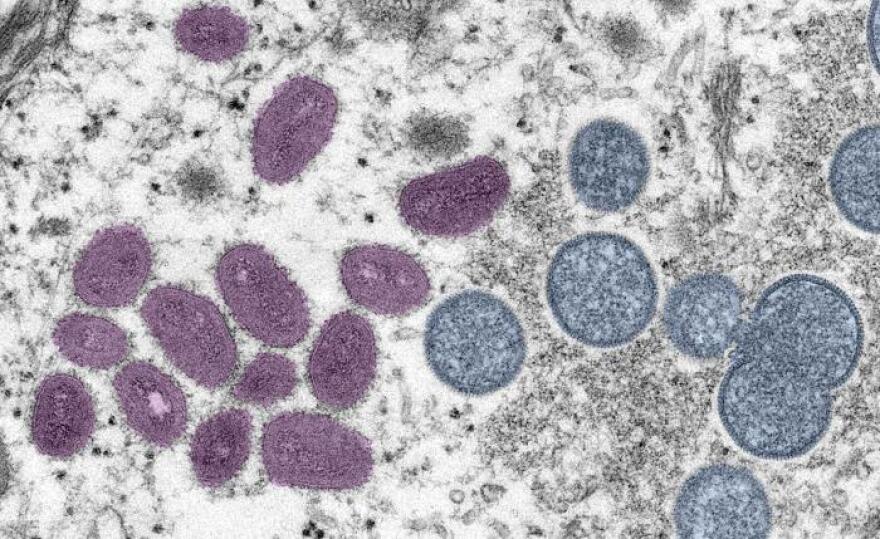The federal government is sending an additional 1,140 doses of the monkeypox vaccine to New Hampshire, according to state health officials.
New Hampshire’s Department of Health and Human Services expects the new doses to arrive in the next several weeks.
On Friday, state officials said they are working with health care providers to administer the vaccine to people who are at highest risk for monkeypox — but details about that distribution plan remain scarce.
State health officials told NHPR they are not yet ready to share details about what health providers they are working with, but will provide that information once they have a list finalized. They also did not respond to questions about how they are identifying people who might benefit from the vaccine or what regions of the state are receiving doses.
Several reproductive health centers and regional public health networks contacted by NHPR this week said they are awaiting further guidance about what the New Hampshire’s monkeypox vaccine and prevention strategy will look like.
Speaking to the Executive Council earlier this week, a top public health official said reproductive health centers would play a critical role in the fight against the disease.
“Our sexual health centers are really on the front lines for ensuring that we can get vaccine to folks and that there's screening and treatment for monkeypox,” Director of the Division of Public Health Services Patricia Tilley said.
Despite pleas from Tilley and other health officials, Republicans on the council blocked over $1 million in funding that could have supported this kind of testing at several of the state's largest reproductive health providers.
New Hampshire has thus far identified fewer monkeypox cases than other states and therefore has received fewer vaccines. As of Thursday, New Hampshire had seven confirmed cases of the virus, according to the Centers for Disease Control and Prevention. More than 115 cases have been identified in Massachusetts and more than 1,200 have been detected in New York. With testing access limited, however, experts worry these numbers are an undercount.
Symptoms of monkeypox include fever, rash and swelling. According to the CDC, it can spread through "close, personal, often skin-to-skin contact," which can include "contact with respiratory secretions" or "touching objects, fabrics (clothing, bedding, or towels), and surfaces that have been used by someone with monkeypox."
The CDC says research is ongoing to learn more about how the virus spreads.







